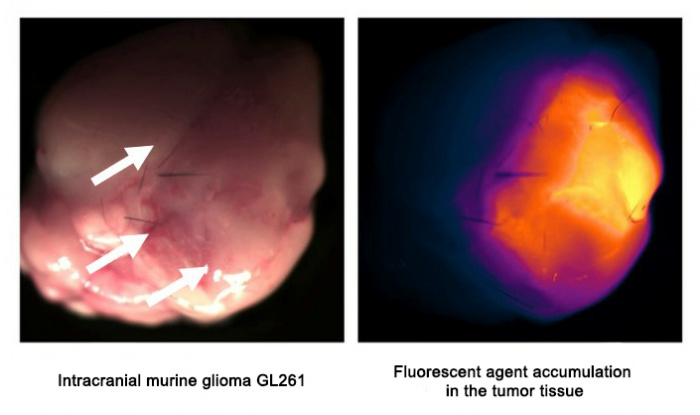
Preparing to test a novel agent for brain tumor treatment and detection
Every year, more than half a million people in the world are diagnosed with malignant CNS tumors. Unfortunately, despite certain advances in medicine, a third of them die within the first year of diagnosis.
All this dictates the need to search for new diagnostic methods and targets for personalized, targeted therapy. One of them can be a protein-based agent called RAS70, developed by the team of the Translational Oncology Laboratory of the WCRC for Personalized Medicine.
It can selectively accumulate in cancer cells due to conjugation to heat shock protein Hsp70, which is only localized on tumor cells. Because of this ability, the RAS70 agent can target cancer cells exclusively while sparing healthy cells.
Labeling the RAS70 peptide with a fluorescent tag will allow a neurosurgeon to literally see “luminous” tumor cells during surgery, as well as the margin between the neoplasm and the healthy brain tissue, and increase surgical radicality. To date, laboratory scientists have already proven in vitro that the agent really accumulates only in malignant cells and are ready to start synthesizing molecules for clinical trials to be completed in 2024.
The development of new methods for early diagnosis and therapy is a priority in modern clinical neurooncology. The creation of such agents is in line with the current scientific trend in the introduction of targeted agents in clinical medicine. It is expected that the use of an agent targeting the membrane form of Hsp70 will double the average life expectancy for patients with glioblastoma multiforme from 14.6 months to 30 months.
20.06.2022
